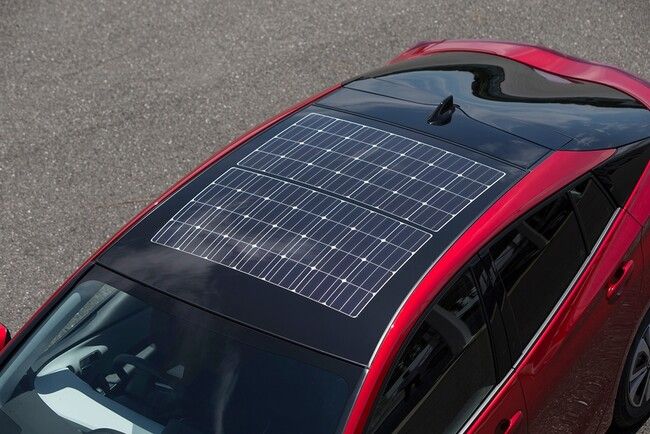The global automotive industry is entering a groundbreaking new phase as solar-powered hybrid cars officially receive approval for mass production. This milestone marks one of the most significant advancements in sustainable mobility, blending solar technology with hybrid engineering to reduce fuel dependency, lower emissions, and create a more eco-friendly future for transportation. With governments and manufacturers both pushing for greener innovations, solar hybrid vehicles are set to rewrite the future of how we travel.
Solar hybrid cars combine traditional hybrid engines with integrated solar panels, usually installed on the roof, hood, and sometimes even on the doors. These advanced photovoltaic surfaces convert sunlight into electrical energy, which then powers the car’s battery system. This energy not only supplements the primary power source but can also extend driving range, reduce fuel consumption, and decrease carbon emissions significantly. In regions with strong sunlight, drivers can travel substantial distances daily using solar energy alone.
The latest approval for mass production is the result of years of research, testing, and collaboration between automotive engineers and renewable energy experts. For a long time, solar cars were dismissed as experimental or impractical for everyday use. But improvements in solar cell efficiency, battery capacity, and lightweight panel design have changed the equation. Modern solar cells can produce more energy from less sunlight, making solar-powered vehicles not only viable but economically attractive.
The approval also reflects strong governmental support. Many countries are now encouraging solar mobility through subsidies, tax benefits, and flexible regulations to promote cleaner transportation. Environmental policies, rising fuel costs, and global commitments to carbon neutrality have created the perfect environment for solar cars to enter mainstream production. As a result, manufacturers are scaling up production lines, and early demand is already strong in Europe, the United States, Japan, and parts of Asia.
One of the biggest advantages of solar hybrid cars is reduced fuel consumption. Drivers who commute short distances may find that sunlight alone is enough to keep their battery charged for daily travel. Even during cloudy days, the hybrid system ensures uninterrupted driving, seamlessly switching between solar power, battery energy, and fuel when needed. This blend of reliability and sustainability gives solar hybrids a unique edge over fully electric cars, especially in areas with limited charging infrastructure.
In addition to fuel efficiency, solar hybrids offer longer battery life. Since the solar panels assist in charging, the vehicle depends less on public chargers or internal power from the engine. This reduces battery strain and increases longevity—an important factor for cost-conscious buyers. With time, advancements in solar coating technology may even allow entire vehicle bodies to generate electricity, drastically improving power output.
The environmental benefits are equally compelling. Solar hybrid cars emit far fewer pollutants compared to traditional fuel-based vehicles. Since they generate clean energy directly from the sun, the carbon footprint per kilometer drops significantly. For cities struggling with pollution, widespread adoption of solar hybrids could bring noticeable improvements in air quality and energy consumption.
This approval also opens the door for further innovation. Manufacturers are already testing smart solar roofs, transparent solar glass, and ultra-thin flexible panels that can integrate seamlessly with car designs. Future models may offer self-charging capabilities so powerful that cars can remain off-grid for extended periods. Combined with AI-assisted energy management systems, these vehicles will maximize solar energy based on driving patterns, weather forecasts, and route data.
The mass production of solar hybrid cars is not just a technological achievement—it is a shift in global automotive philosophy. It signals a future where vehicles rely less on fossil fuels, require fewer charging stations, and operate with greater harmony with the environment. As more models enter the market, solar hybrid technology will become more affordable, more efficient, and widely accessible.
With this approval, the world is witnessing the beginning of a cleaner mobility revolution. Solar-powered hybrid cars promise a future where driving becomes sustainable, economical, and powered by the limitless energy of the sun.


